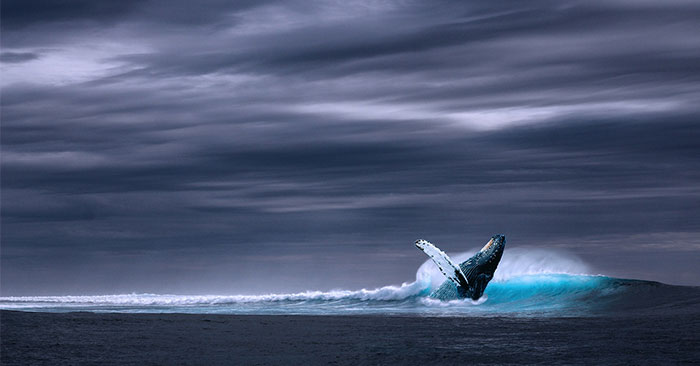As teen suicide rates erupt in Russia, authorities look to online ‘death groups’ as prime suspects. Their alleged platform? A disturbing social media game called the Blue Whale Challenge. It’s time to ask what we can do to ensure our teens are safe.
It seems unfathomable that something like this could exist. Something so dark. So heinous. It’s like a modern day Jack the Ripper – a faceless killer wreaking havoc on the weak – only now, Jack is a ‘curator’, his weapon a social media game and his victim…our fragile youth.
What is the Blue Whale Challenge?
In some depraved way, it’s a game. And it’s quite simple really:
- Seek out a curator, or mentor – a member of a death group or online community that convince teens to take their own lives who guides you through the Blue Whale Challenge
- Agree to complete every task the curator assigns – NO backing out or they will come for you
- Oh, and one more minor detail – acknowledge that to win, you must die.
That’s right. After 50 days of acquiescing every demand, including disrupting your sleep schedule and self-mutilation, your curator will tell you to kill yourself. And so far, more than 130 Russian teens have done just that, while numerous other teens around the world have been saved before it was too late.
Reported by RT last year, authorities and the media have since been investigating whether the Blue Whale Challenge is in fact being played outright or if it’s an urban legend – either way, something is happening and we need to make it stop.
Why are teens playing?
Pressure is greater than ever. Gone are the days when bullies were left at the schoolyard and the image of perfection was limited to the latest magazine covers at the supermarket. Now, in our tech-obsessed society, we are continuously exposed to – no bombarded with – an endless barrage of flawless celebrities, baseless sub-truths and unrealistic goals. Cyberbullying follows us home. Social media means our lives are what we let people perceive. And when you’ve never known life without this steady flow of warped reality, the surreal is just plain real.
It’s easy to feel left out. Numb. Stranded. Like the blue whales who beach themselves to die. So, when someone gives you a chance to feel a rush, to feel a sense of belonging, to feel something, what have you got to lose? The World Health Organization reports suicide as the “second leading cause of death among 15-29 year olds globally,” and with youth suicide the fastest growing segment of this demographic, it’s easy to start connecting the dots.
It’s time for a conversation
Once taboo, youth suicide – especially in relation to the dangers of social media, peer pressure and depression – is begging to be heard. Pop culture has started the conversation with films like Lionsgate’s Nerve or series like Netflix’s 13 Reasons Why. And for the first time, society is giving a voice to those without.
Did you know hospitalization of youth with suicidal intentions has doubled in the last ten years? It’s up to us to keep the conversation going. Look for signs of the Blue Whale Challenge – pictures of blue whales, depressed posts or images, specific hashtags (#bluewhale, #bluewhalechallenge, #curatorfindme, #f57, #f58, #I_Am_Blue_Whale) – and voice your concerns.
Students, speak up if you see changes in your peers or come across pro-suicide groups. Parents, communicate with your children.
And while it’s impossible to know what someone is doing or thinking at all times, there are tools to make it easier. FlexiSPY’s monitoring software gives you peace of mind knowing that your children are making the right decisions online and allows you to step in at the first sign of trouble or inappropriate interactions.
Use FlexiSPY as a means of showing your teen you trust them. You’re not spying or keeping them hooked to your fishing line. But you are instead protecting against those looking to catch them in their own sinister nets.
Most of us will probably never understand why others choose to prey so viciously on the vulnerable, but we can take steps to prevent it. Have the conversation with your teens about the Blue Whale Challenge. Let them know they are never alone, because really, we are all swimming together in a deep blue sea. And it’s our duty to make sure that everyone – even the blue whale – stays in the water.
























发表评论